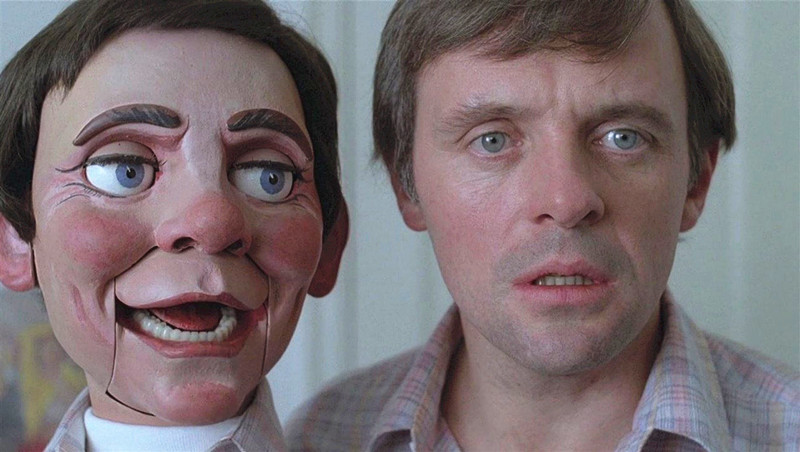
The ‘70s was a time when formulaic horror was discarded for more experimental plot lines. Concepts restricted to adaptations of gothic novels and sci-fi were exchanged for tales that tackled the more unnerving side of human nature. The films of the ’70s exploded with independent creatives dropping movie after experimental movie that challenged the fabric of what could scare theatre-goers.
While many of the decade’s more commercial successes have become staples in any film fan’s horror hit list, some of the more outlandish pieces of celluloid have been forgotten. Rather than allowing them to collect dust, below is a list compiling ten creepy ’70s films which deserve higher praise – both for their innovation and barrier-breaking plot design. They are titles which, while shying away from mainstream appraisals, have laid the groundwork for many horror tropes we see as solid structures in the genre today. Unlike ‘The Exorcist’ or ‘Halloween’ they are no ’70s monoliths, but they offer unique and refreshing takes on cinema’s ability to give us the creeps.
These movies, often due to production quality and sheer weirdness, are not perfect and certainly not to everyone’s taste. Despite this, horror fanatics may delight in the awe-inspiring frights these lesser-known titles continue to deliver over forty years since their release.
1. Magic (Richard Attenborough, 1978)
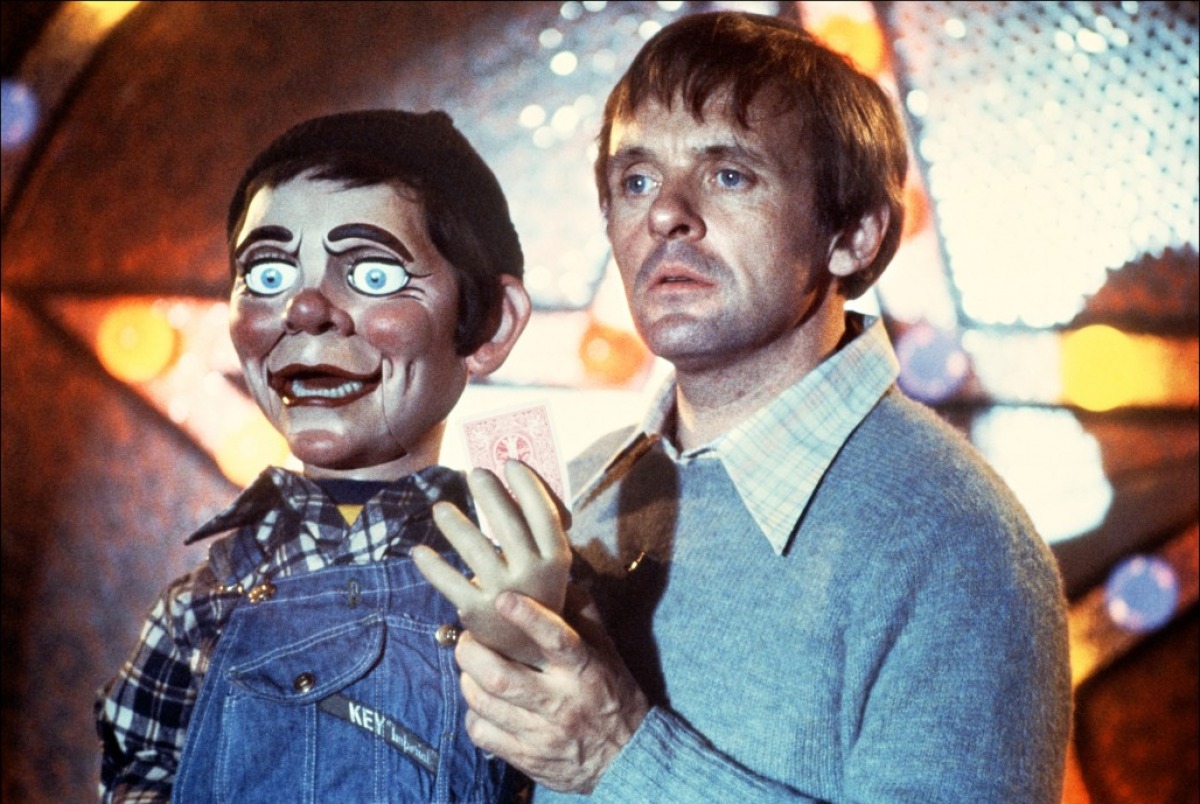
There is no better film to commence this list than ‘Magic’. In a truly unique plot execution, the film follows socially awkward magician Corky (Anthony Hopkins) as he is torn away from budding opportunities for fame and love by a strange relationship he has developed with the newest feature of his stage act: his ventriloquist dummy nicknamed ‘Fats’. If you have a phobia of puppets or dolls, ‘Magic’ is sure to be an uncomfortable experience.
Hopkins is fantastic, both as the timid magician with a confidence issue and the high-pitched drawling voice of Fats. Part of the film’s magic is its ability to keep you wondering as to whether Fats is developing a mind of his own, or whether all the chaotic dialogue unfolding between Corky and Fats is merely a product of the former’s unravelling mind. All signs the film litters for its audience point to the latter but the shots of Fats peering immobile from Corky’s cabin window still ensorcell the audience with the deep fear that Fats is indeed alive.
The film contains unsurprisingly arresting performances by both Hopkins and his on-screen love interest Peg, Ann-Margeret. The high-intensity of the film and its feverish development of a man consumed by his deepening reliance on his own comedic mouthpiece makes for a fascinating and unsettling watch.
2. Asylum (Roy Ward Baker, 1972)
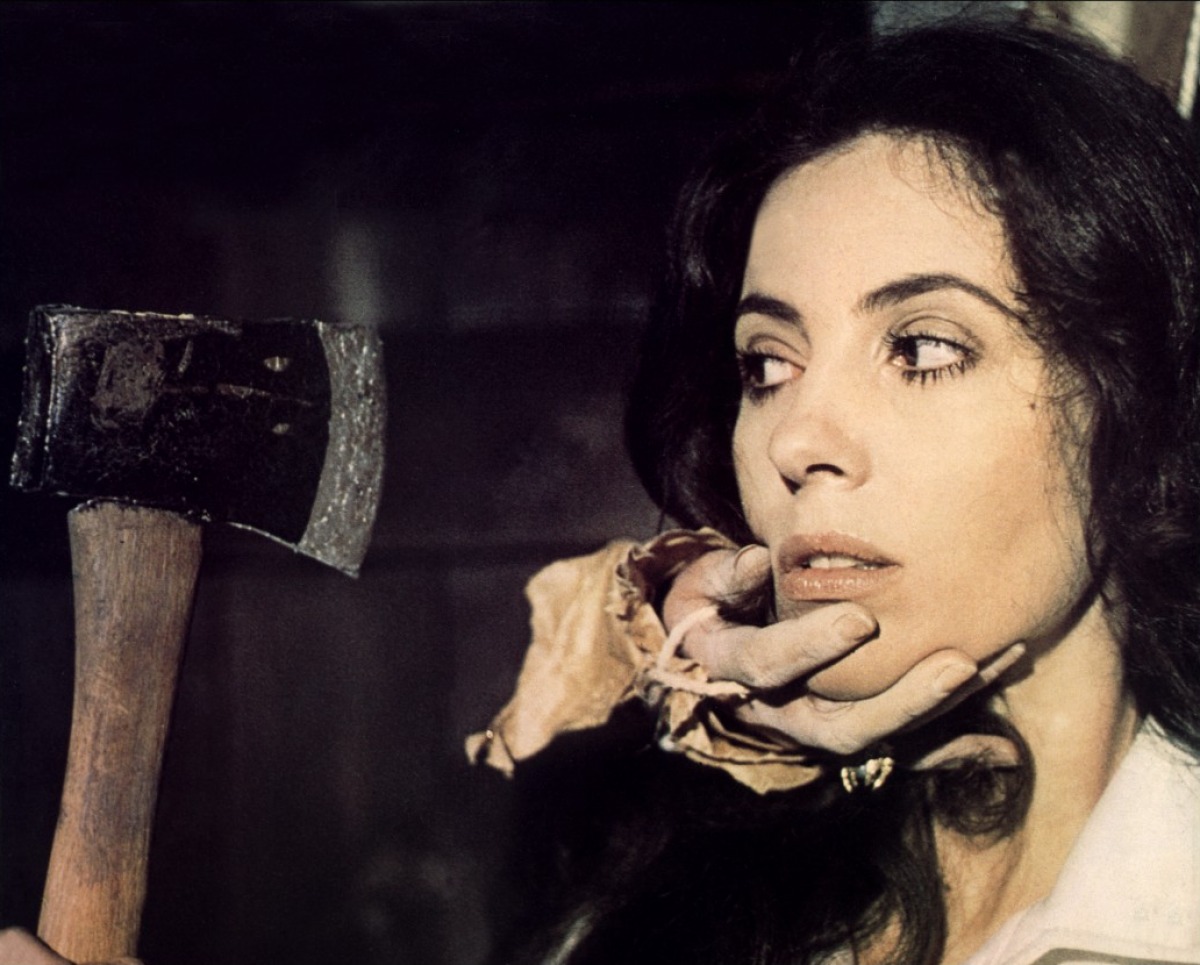
‘Asylum’ is something of an anthology film, with an underlying thread linking each visual novella together. Starring an array of iconic actors such as Peter Cushing and Herbert Lom, ‘Asylum’, with its gothic institutional setting, is a grey, dark and dank exploration of mental deprivation in a series of wild and outlandish tales. Marketed as being from the same author as ‘Psycho’, one is primed to expect a disturbing glimpse into the deepest recesses of the mind. The film delivers, and is framed with that deliciously hammy air quintessential of British Hammer productions throughout the late ‘50s and ‘60s.
While retaining these melodramatic Hammer elements, ‘Asylum’ represents something of a divergence into the darker and more seedy realms of the 1970s. It also combines some quintessential elements of horror – dolls, spooky settings and a heavy helping of madness – and wraps them into a chilling mystery that is almost an unsuspecting and eerie precursor to Scorsese’s ‘Shutter Island’ (2010).
‘Asylum’ contains the old-fashioned charm of British ‘haunt’ films and heightens this with its dark twist of insanity. Both elements work surprisingly well to produce a dark film filled with gothic flair.
3. God Told Me To (Larry Cohen, 1976)
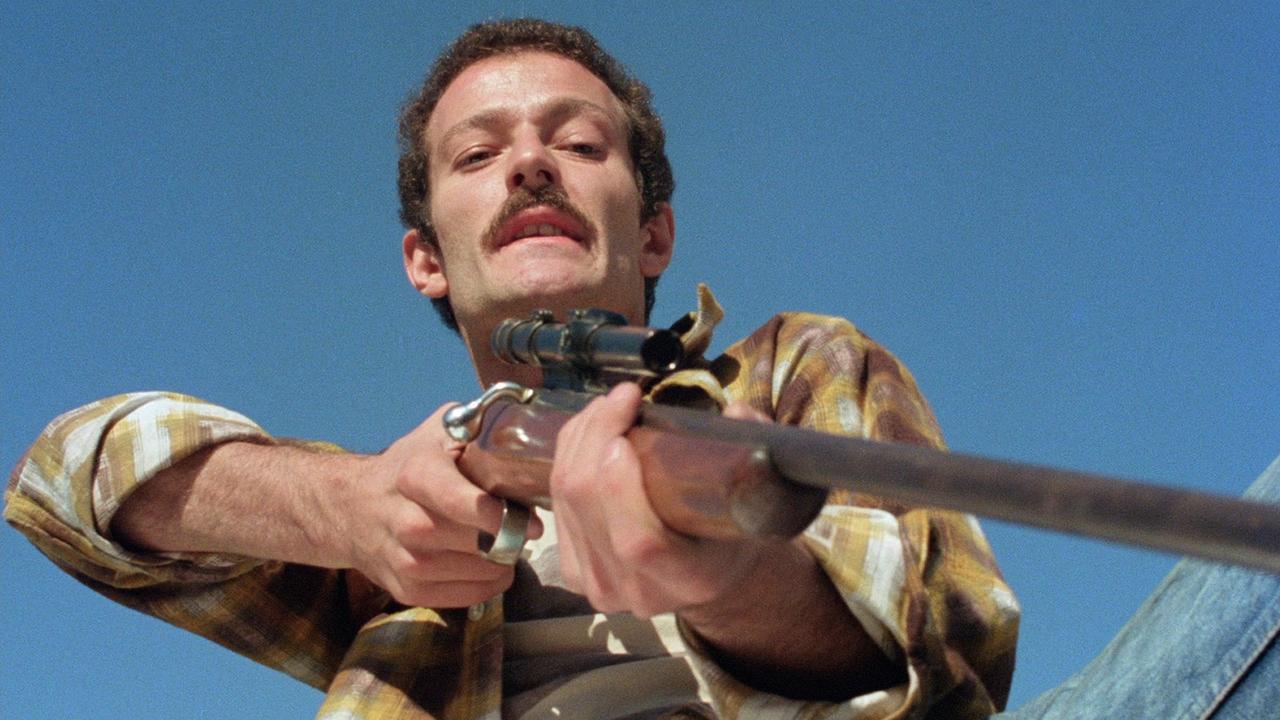
Perhaps the most unconventional film on this list, ‘God Told Me To’ is a film that tends to split viewers upon watching. Despite its lack of universal appeal, the film itself must be appreciated for its compelling narrative and experimental quality.
Marketed initially and rather misleadingly as ‘Demon’, the film depicts a New York detective Peter Nicholas (Tony Lo Bianco) who is confronted by a string of murder-suicides by people who insist the voice of ‘God’ told them to do so. As Nicholas embarks upon this bizarre mystery, he discovers a personal connection leading him to the source of this epidemic of strange behaviour.
‘God Told Me To’ arguably begins as one film and ends in a totally different dimension. Always, it is bestowed with a creepy undertone While many tend to focus on the film’s more outlandish qualities, its success in instilling a simmering sense of dread in its audience is worthy of praise. The film may leave you a little stunned, if not bemused, but it represents a unique and brave divergence from typical conventions already beginning to emerge in the ‘70s, with slashers gaining prevalence. ‘God Told Me To’ undoubtedly marches to the beat of its own drum, and this is what makes it a one-of-a-kind viewing experience.
4. Season of the Witch (George Romero, 1972)
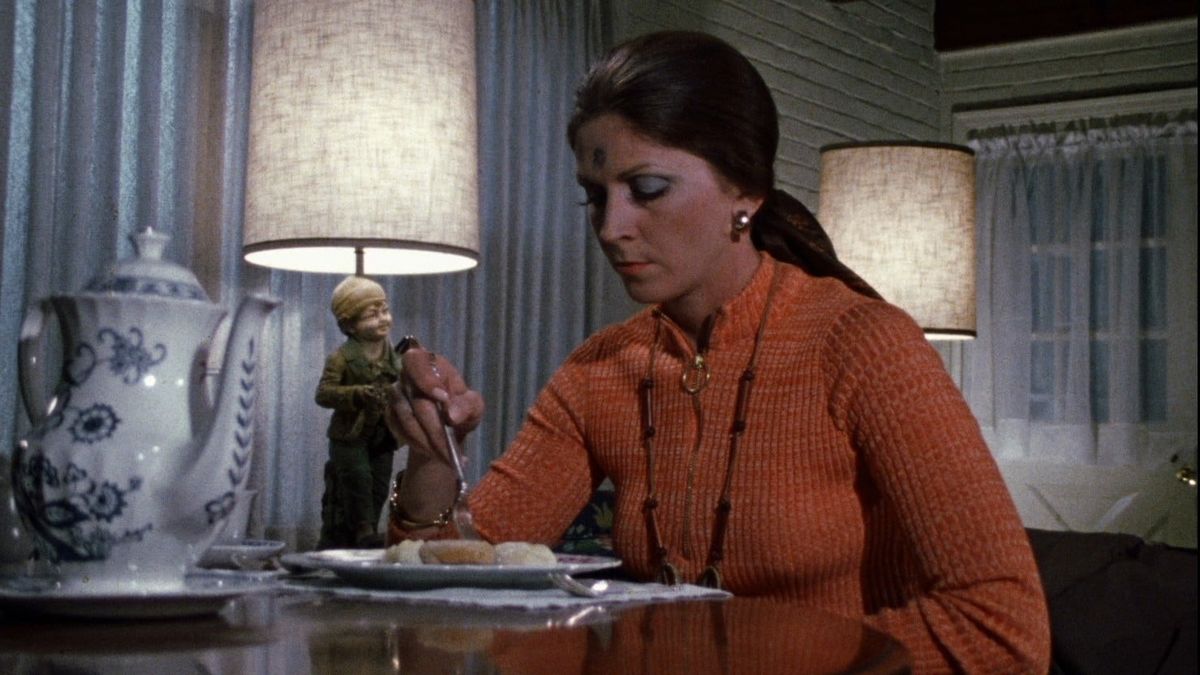
Prior to the release of George A. Romero’s modern vampire flick ‘Martin’ (1974), the famed horror director had shifted his attention to another of the genre’s favourite subjects – witches. ’Season of the Witch’ represents Romero’s lesser-known foray into folk horror, prior to his extensive and all-consuming focus on his zombie films. Before picking up the ‘Dead’ series in 1978 with ‘Dawn of the Dead’, Romero’s ‘Season of the Witch’ focused on a much more suburban nightmare of a local housewife who meets a witch and dabbles in ritualistic magic to become more independent.
Romero labelled the film as a feminist one, and it is easy to see why. Despite falling under the somewhat unrealistic bracket of housewives performing rituals to spite their husbands, it nevertheless presents women fighting against patriarchal norms in an extreme way, and securing their own identity, rather than remaining a belittling extension of their husbands’.
As is the standard with most wiccan entries into celluloid, the film is saturated with frightening imagery, Satanic rituals, and nightmarish sequences that behold the delightfully campy quality the ‘70s executed so well. Despite its sometimes corny overtones, ‘Season of the Witch’, originally marketed as ‘Hungry Wives’, is a refreshing divergence from the tendency of the decade to make women survivors of horrendous ordeals or attacks. Instead it makes women active participants in their situation. Romero’s injection of social commentary into his movies is no more present than here.
5. Audrey Rose (Robert Wise, 1977)
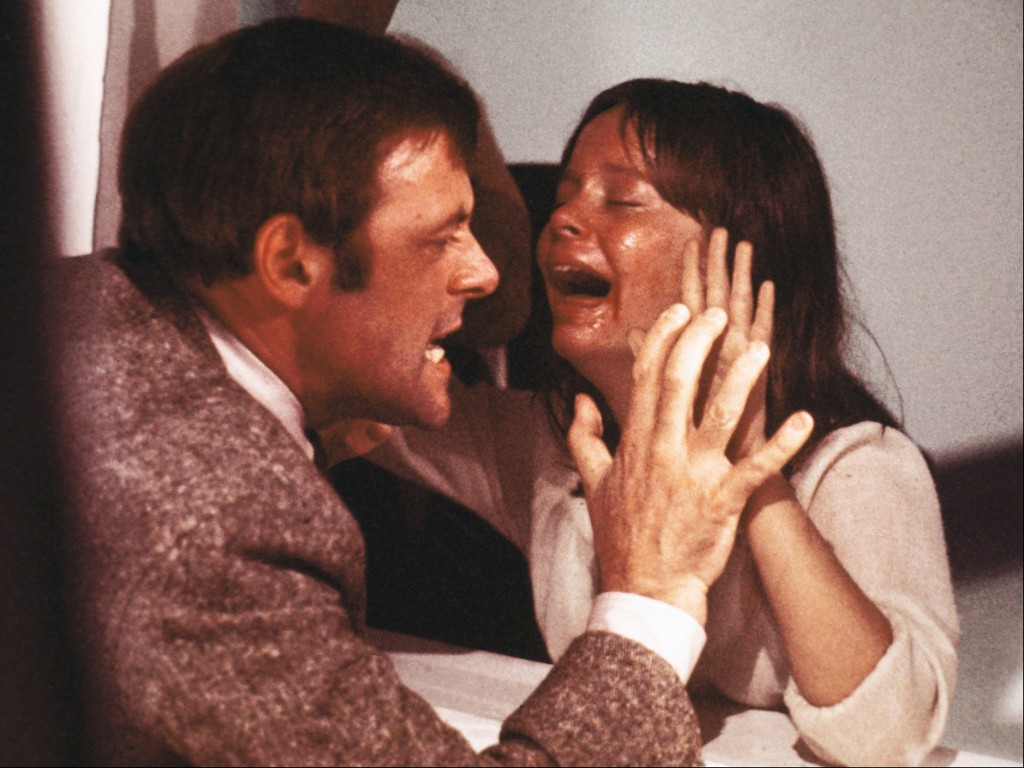
Featuring another phenomenal turn by Anthony Hopkins to grace this list, ‘Audrey Rose’ is something of a tragic and bewitching tale of a little girl named Ivy whose parents are confused when rabid nightmares turn out to be the product of reincarnation. Grieving father (Hopkins) of a girl who died in a horrific crash at the instant of Ivy’s birth pursues the family after his spiritual travels point to his daughter being reincarnated.
The film is oddly mesmerising, and while it is not outwardly scary, its philosophical ponderings of the state of the soul and one being trapped in a cycle of re-living its own death is nothing short of chilling. Hopkins’ emotional performance is matched by Marsha Mason as the torn mother and Susan Swift as Ivy. Ivy’s outbursts are stunningly real, and Mason’s performance as the lost and frightened mother willing to save her daughter’s soul elevates the film to an emotionally evocative picture. Naturally, the strange events surrounding Ivy’s outbursts and her erratic behaviour are chilling, but ‘Audrey Rose’ is markedly different from other films in its sympathetic overtone.
The film is admittedly a little drawn-out and repetitive on occasion, but its climax focusing on the hypnotism of Ivy to prove her vessel bears Audrey’s soul too, is nothing short of compelling. ‘Audrey Rose’ is an unforgiving and upsetting film with a resolution one might not expect. If you persevere with it enough, the film is somehow able to deliver on creepiness and emotional investment.